Main | Nutrition | Supp Stack | Water & Sodium | Training & Cardio | Posing | Stage Presence
By the time you've reached your final week of contest preparation, dieting has taken over from training as the ultimate key to success (or failure).
You're counting carbs and fat grams as meticulously as an auditor scours the books of a sketchy start-up company, and missteps can be hard to undo or overcome.
The video tells you how to avoid those mistakes in the first place.
Avoiding Dietary Disaster
When it comes to peak week nutrition, it's all about carbohydrates. They're the star of the show to come, with protein and fats playing supporting roles.
Here's what to do:
1. Do Only Very Moderate Carb Loading
If your body is accustomed to 100 grams of carbs per day, and then you load 800 grams for three days, disaster awaits. That's why I recommend never consuming more than three times your normal contest-prep carb load during peak week.
2. The Absolute Amount of Carbs to Load, and How Long to Load Them, Is a Matter of Trial and Error
I usually front-load carbs earlier in the week because I'm still training hard and my body can tolerate them. I taper them down as the show draws nearer.
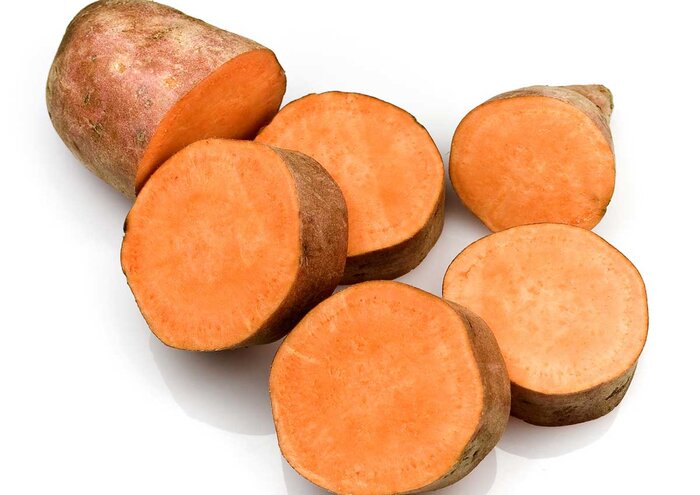
3. This Also Gives You More Leeway to Adjust Depending Upon Your Body's Response
Spill over and you can still reduce your carbs before the show and recapture tightness. Closer to the show, such adjustments are no longer an option.
4. Protein and Fats Should Be Held More or Less Steady During Peak Weak
Any adjustments should be minor: I tend to start off with lower protein earlier in the week, when carbs are higher, and slowly bring that back up to normal levels over the course of the week.
5. On Show Day, a Moderate Carb Load Should Fill You Out
Starting 6-8 hours from prejudging, consume 30-80 grams of carbs every 2-3 hours.
A 220-pound ectomorph will want to err toward the high side of that range, whereas a 150-pound endomorph will want to err on the lower side.
6. Eat Low-Fiber, Low-Bulk Sources of Carbohydrates
Consume small amounts of protein (10-20 grams) and fat (5-10 grams) with each meal. To allow enough time, ectomorphs may want to begin loading on Friday, a day before the show.
7. The Right Meal Consumed 2 Hours Before Prejudging Can Help You Fill Out
The protein/carb/fat/sodium mix varies by person, but 20-30 grams of protein, 40-100 grams of carbs, and 15-30 grams of fat with 800-2,000 milligrams of sodium works well for me.
I've had good luck eating a sub sandwich.

8. What You Choose to Eat to Hit These Targets Depends on Your Metabolism and Food Sensitivities
If you're lactose intolerant, allergic to gluten, or both, consuming a large amount of bread and cheese on a sub obviously isn't for you.
Remember, nothing substitutes for trial and error, so the earlier you can test-drive some of these techniques, the better.
Layne Norton's Peak Week 7-Day Nutrition Plan
Here's a sample of a peak week approach that has worked well for me for past shows. See the above video to learn how to adjust your own nutrition plan.
Thursday/Friday (8 & 9 Days Out)
- Protein: 275 g (normal)
- Carbs: 140 g (maybe slightly lower than normal)
- Fats: 45 g (normal)
- Sodium: 5,000 mg (pretty high, but the amount I normally consume in a day)
- Fluid: 1-1/2 gallons
- Training: normal
- Cardio: normal
Saturday/Sunday
- Protein: 255 g
- Carbs: 180-200 g
- Fats: 45 g
- Sodium: 5,000 mg
- Fluid: 1-1/2 gallons
- Training: off
- Cardio: final high-intensity interval sessions
Monday
- Protein: 235 g
- Carbs: 380 g
- Fats: 50 g
- Sodium: 5,000 mg
- Fluid: 1-1/2 gallons
- Training: Last heavy leg day (no sets to failure, 80% or so of normal weights)
- Cardio: 50 minutes at moderate intensity
Tuesday
- Protein: 245 g
- Carbs: 320 g
- Fats: 50 g
- Sodium: 5,000 mg
- Fluid: 1-1/2 gallons
- Training: Last heavy back-and-chest day (no sets to failure, 80% or so of normal weights)
- Cardio: 40 minutes at moderate intensity
Wednesday
- Protein: 255 g
- Carbs: 260 g
- Fats: 45 g
- Sodium: 5,000 mg
- Fluid: 1-1/2 gallons
- Training: Last heavy shoulders-and-arms day (no sets to failure, 80% or so of normal weights)
- Cardio: 30 minutes at moderate intensity
Thursday
- Protein: 265 g
- Carbs: 200 g
- Fats: 45 g
- Sodium: 5,000 mg
- Fluid: 1-1/2 gallons
- Training: 40 minutes of light circuit training (pick one exercise for each body part, and rotate through it nonstop; use 60% of normal weights)
- Cardio: 20 minutes at moderate intensity
Friday
- Protein: 275 g
- Carbs: 250 g
- Fats: 45 g
- Sodium: 5,000 mg
- Fluid: 1-1/2 gallons
- Training: 20-25 minutes of light circuit training
- Cardio: 10-20 minutes of low-intensity cardio, such as walking
Saturday
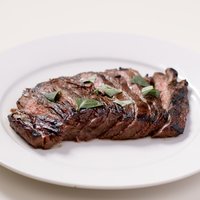 Steak
Steak
 Sweet Potato
Sweet Potato
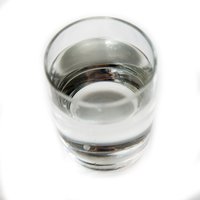 Water
Water
 Protein Bar
Protein Bar
 Water
Water
 Banana
Banana
 Submarine Sandwich
Submarine Sandwich
 Water
Water
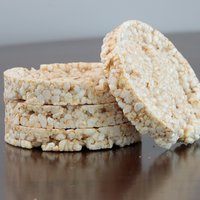 Rice Cake
Rice Cake
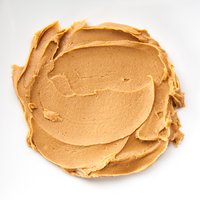 Peanut Butter
Peanut Butter
 Snickers Bar
Snickers Bar
 Peanut Butter
Peanut Butter
In between those first four meals, I also drink 12 ounces of water. After the fourth meal, I sip water as needed to quench my thirst.
I also pump up for 10 minutes after meals 1 and 4, and right before hitting the stage, to help deliver glucose to muscle cells.
Dietary Tips
Finally, I've included miscellaneous dietary tips for peak week:
1. Limit vegetable and fiber intake during the last 16-20 hours before the show to prevent excess gut fill and possible bloating from fermentation of the fiber.

2. Take a non-drowsy antihistamine the morning of the show. You're more prone to allergies and sickness in your final week because depletion suppresses immune function. Allergies and illness can cause the body to increase levels of histamine, a compound that can trigger water retention in addition to many other cold symptoms (i.e., stuffy head, stuffy nose, etc.). Taking an antihistamine can help prevent this action should illness or allergy occur.
3. Continue taking creatine as you've been taking it during contest prep, but if you haven't been using it, don't start in the final week! Some people cut out creatine because they think it will make them retain water. Creatine actually shifts the water balance where you want it by putting more water inside the cell. It will help you maintain your fullness. Now that being said, many people try to load creatine in the final week to amplify this effect. Don't do it! If your body isn't accustomed to taking creatine and you start loading it, your digestive system may not be able to dispose of all the creatine in the bloodstream, drawing water into the GI tract and causing you to bloat.
Main | Nutrition | Supp Stack | Water & Sodium | Training & Cardio | Posing | Stage Presence


